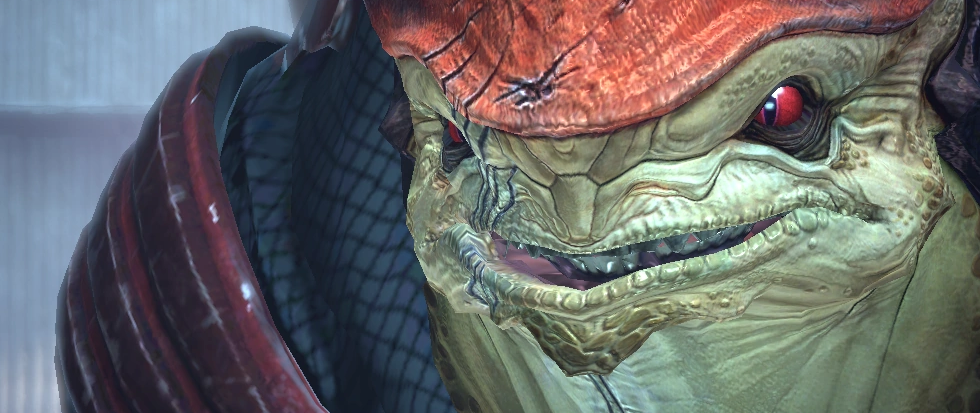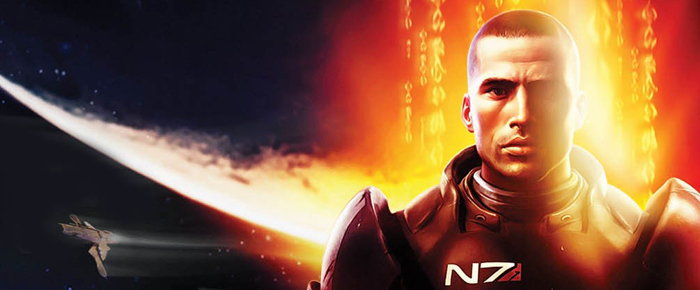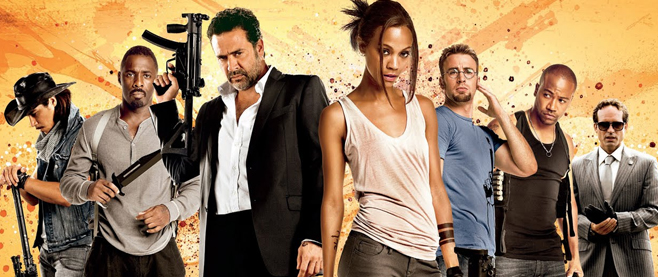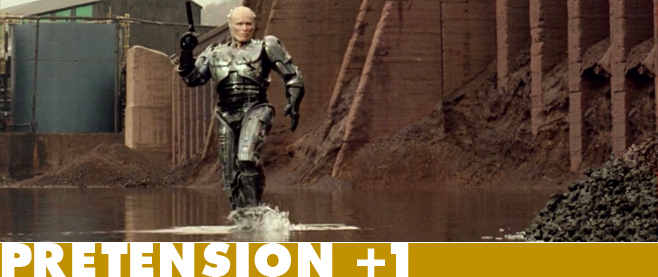
For Commander Shepard, Ignorance Is Access
Every new game world has a problem to solve: the player is unfamiliar with an environment the characters are fluent in, and there’s a knowledge gap to cross. Some resolve it with a bout of temporary (or not so temporary) amnesia, and others opt for the non-diegetic solutions of tooltips and codexes, but Mass Effect makes the particular choice of what can only be described as expositional racism.
In lieu of more conventional methods of bridging the gap between player and character familiarity, Mass Effect loads much of its early worldbuilding into in-universe microaggressions and hostility. Characters make sweeping judgements about “you Turians”, “you Krogans”, for someone else to correct. Perhaps Turians broadly feel this way, but not all Turians. Or, as it usually comes up in direct confrontation, not this Turian.
Most characters do this, but it’s particularly notable in how this impacts the main character – both in the position of player avatar, and in the narrative role of Commander Shepard, galaxy saviour. I winced as I watched “humanity’s best” walk up to a foreign diplomat and ask him why he talked differently, but Shepard actively voicing suspicion as to why Garrus, a new party member and later romance option, would ally against a member of his own race was far more uncomfortable.
When you begin to get to know fellow party member Wrex, whose entire race has been intentionally afflicted by a sterility plague, Shepard repeatedly compares this act of genocide to a historical war, provoking him into explicitly detailing how the two are not the same. There’s no way to get through this conversation without being (at best) horrifically tactless, but even so, Wrex off-handedly assures Shepard that he’s “not offended”.
Shepard’s ignorance could be an interesting flaw – as a military commander in a setting heavily flavoured by imperialism and colonialism – but the game doesn’t want to observe it. Shepard’s xenophobia is the game’s response to the player wanting to learn more about the world, so the world bends around it. They get to ‘win’ every social interaction, when even ungenerous NPCs are framed as unreasonably hostile. I can play Shepard as diplomatic or aggressive, but they’re always good, and most importantly, right.
Mass Effect is a power fantasy for the player – and one particularly invested in defining power in strength and influence and agency. Shepard’s xenophobia and its invisibility are both tools to give players what they want: as much access to the game’s world as possible, without the social cost. Their critics are only depicted as acting in bad faith, spanning the spectrum from obstructive bureaucrats to tabloid journalists to literal terrorists.
Where Shepard’s prejudices are handwaved, other characters are marked. Without the obscuring layer of tone indicators on a dialogue wheel, other characters engaging in the same ‘expository racism’ are read as memorably cruel. Alien cast members have series-long arcs to overcome their biases and make good for their wrongdoings, while Shepard’s guilt sits exclusively in the “what ifs” of war.
At the end of the series, it’s possible for Shepard to work to cure the sterility plague that afflicts the Krogans, but it’s framed as an arc about trust between them and Wrex. In the same storyline, the ugly prejudice and work for redemption belongs to a third character entirely, while Shepard continues to be exactly as moral as they’ve always needed to be. Players get to have their cake and eat it too, but uncritical racism is a strange dessert to serve.
Ruth Cassidy is a writer and self-described velcro cyborg whose DMs are open for pictures of mountains & your cats. Direct them to twitter @velcrocyborg





